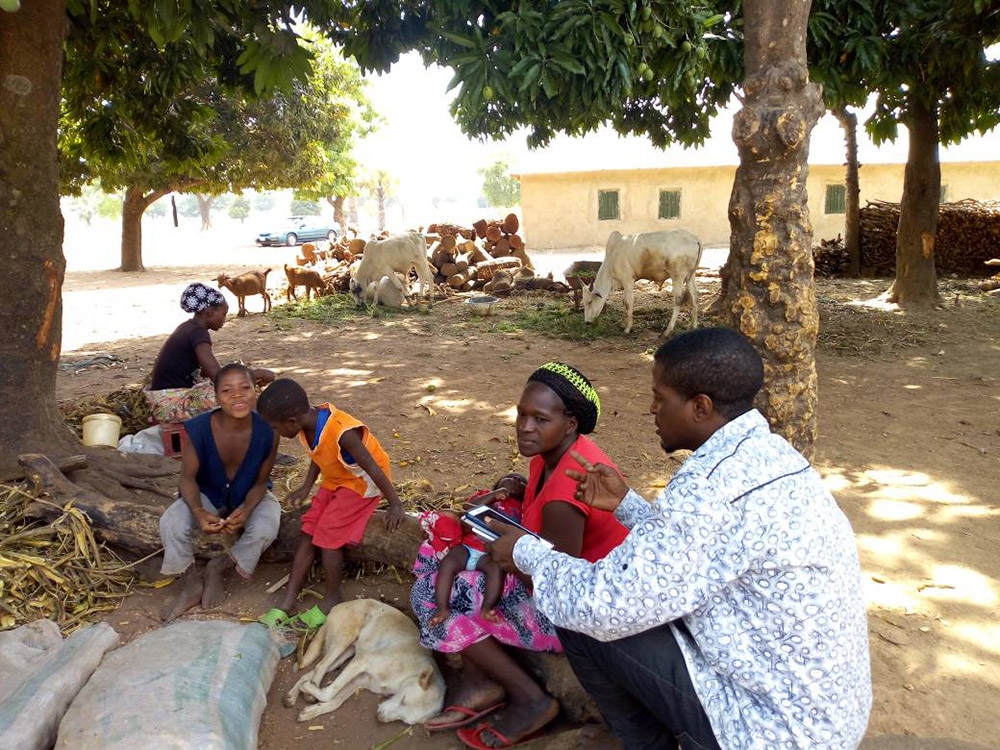Agricultural Policy Research in Africa (APRA)
Overview
APRA aims to produce new information and insights into different pathways to agricultural commercialisation in order to assess their impacts and outcomes on rural poverty, women’s and girl’s empowerment and food and nutrition security in Sub-Saharan Africa.
Objectives
The Consortium has four interlinked objectives: (1) generating high-quality evidence on pathways to agricultural commercialisation in Africa, using a rigorous mix of quantitative and qualitative methods; (2) undertaking policy research on agricultural commercialisation to fill key evidence gaps and define policy options; (3) ensuring the sharing and uptake of research by a diverse range of stakeholders; (4) strengthening the capacity of the research team, and associated partner institutions, to deliver high-quality research and advice. APRA works in six focal countries across East, West and Southern Africa (Ethiopia, Ghana, Malawi, Nigeria, Tanzania and Zimbabwe), representing both DFID priority countries and New Alliance countries.
The Research
In order to achieve its objectives, the programme is working in sites that examine diverse pathways of commercialisation (influenced by the relationship to markets and scales of operation) and linked to different types of commercialisation (e.g. estates, medium-scale commercial farming, contract farming and smallholder commercialisation). Consortium researchers are carrying out in-depth studies in contrasting sites with varying levels of commercialisation intensity and longevity (i.e. established/ mature vs. recent/emerging sites of commercialisation) and different market connections and infrastructure. To analyse and understand these contrasts, the APRA researchers are employing a combination of quantitative and qualitative research methods and policy analysis tools to examine different types or forms of commercialisation, including comparing low-value staples, high-value horticulture, and industrial and export crops, and their differential outcomes
 Photo: Usman Shehu, APRA enumerator conducting interview in Kaduna State, Nigeria (Photo by Abel Gomina, May 2018)
Photo: Usman Shehu, APRA enumerator conducting interview in Kaduna State, Nigeria (Photo by Abel Gomina, May 2018)
The APRA Consortium work is organized around three Work Streams
- Work Stream 1 is examining the outcomes of different types of commercialisation and analysing people’s selection choices and their consequences;
- Work Stream 2 is exploring longitudinal change over time and identifying different pathways of agricultural commercialisation and their outcomes; and
- Work Stream 3 is analysing key policy issues associated with changing patterns of agricultural commercialisation through six focused, multi-country, policy studies.
MSU's participation
MSU is leading policy studies on Agricultural Commercialization Synergies and Trade-offs between Small-scale and Medium-scale farms in Nigeria (Work Stream 1), and Rapidly Changing Farm Size Distributions in Africa: Evidence from Ghana, Nigeria, Tanzania and Zimbabwe (Work Stream 3).
Thomas Jayne, Lead Principal Investigator
-
Titus O. Awokuse
Red Cedar Professor, Vice Provost and Dean, International Studies and Programs
awokuset@msu.edu
517-355-4567
-
Thomas Jayne
MSU Foundation Professor emeritus
jayne@msu.edu
517-432-9802
-
Saweda Liverpool-Tasie
MSU Foundation Professor
lliverp@msu.edu
517-432-5418
-
Milu Muyanga
Associate Professor
muyangam@msu.edu
Funding
Agricultural Policy Research in Africa (APRA) is a five-year, Research Programme Consortium (RPC), funded by the UK Department for International Development (DFID) and running from 2016-2021. The programme is based at the Institute of Development Studies (IDS), UK (www.ids.ac.uk) and builds on more than a decade of research and policy engagement work by the Future Agricultures Consortium.![]()
![]()
Related publication
Jayne, T.S., Chamberlin, J., Traub, L., Sitko, N., Muyanga, M., Yeboah, F. K., Anseeuw, W., Chapoto, A., Wineman, A., Nkonde, C. and Kachule, R. (2016), Africa’s changing farm size distribution patterns: the rise of medium-scale farms. Agricultural Economics, 47: 197–214. doi: 10.1111/agec.12308







 Print
Print Email
Email